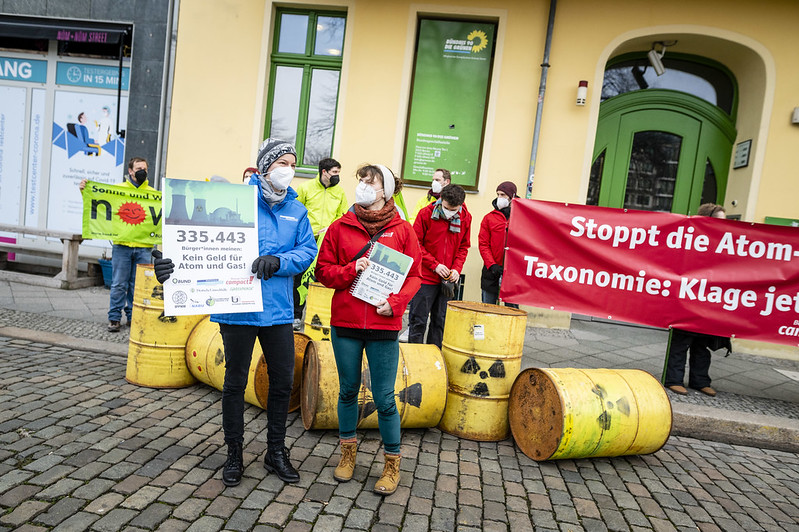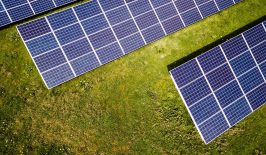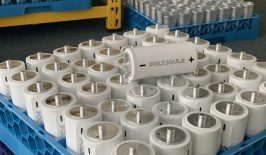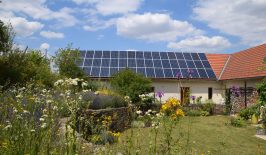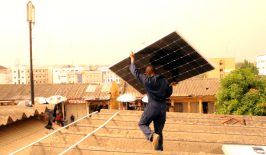Proponents of the decision say gas and nuclear energy are a necessary bridge to a fully renewable energy grid. Meanwhile, critics fear the decision will divert billions of euros from being invested in cleaner and less dangerous technologies. Russia’s war in Ukraine makes the inclusion of natural gas particularly perplexing. The measure received strong support from France, 70 percent of which runs on nuclear energy, and Germany, which is unchained from nuclear energy but bound to Russian gas.
One senior MP in Brussels called it a “dark day for the climate” while another, in Ukraine, lamented that “Putin is rubbing his hands with glee today.” In any case, the decision undermines the integrity of Europe’s so-called “taxonomy for sustainable activities.” Enacted in July 2020, the taxonomy sought to prevent greenwashing by defining which economic activities are verifiably sustainable. Now, by including a geopolitically troublesome fossil fuel and a source of unstorable toxic waste, the taxonomy itself is being criticised as “the biggest greenwash ever.”
Of course, it’s not all doom and gloom. Some climate experts, dismayed but not wholly defeated, say Europe can still achieve its climate targets under the new, more lenient taxonomy. The first step is to ignore it. Those who are serious about green investments will have to apply more rigorous screening than merely relying on what is essentially a Nutri-Score for sustainability. Secondly, it would be difficult for any country to justify doubling down on natural gas at a time when one of its largest exporters, Russia, is effectively cancelled (getting gas from anywhere else would require expensive new infrastructure that won’t be ready for a long time). Ditto on the nuclear front, where new reactors would cost way more and take much longer to build than solar parks, wind farms, and hydropower apparatus. Finally, the taxonomy doesn’t declare gas and nuclear de facto sustainable. Projects in these fields still need to fulfil a certain degree of greenness to be approved for funding.
Here’s what three German climate experts had to say…
On Europe’s continued dependance on Russian gas:
“The EU Parliament’s decision is a missed opportunity to respond to … Russia’s brutal invasion of Ukraine. Investments in natural gas in the areas covered by the taxonomy … are currently not a geostrategically tenable option. Rather, the challenges at the moment and probably for the next few years are the following: First, how can Europe become independent of natural gas as quickly as possible, for example by saving energy or substituting natural gas with renewable energies? Secondly, how can Europe become independent of Russia and its allies as quickly as possible to meet the remaining and hopefully rapidly decreasing demand for gas?”
Prof. Dr Helmut Haberl, Professor at the Institute for Social Ecology, Department of Economics and Social Sciences, University of Natural Resources and Applied Life Sciences Vienna (BOKU), Vienna, Austria
On the inclusion of natural gas in the taxonomy:
“The use of natural gas as a bridging technology in the transition to renewable energy was problematic even before the start of the Ukraine war. Investments in gas-fired power plants would have strengthened and prolonged existing dependencies. In the current situation, such investments are not only questionable in terms of climate policy, but also geostrategically counterproductive and very unlikely given the current prices and supply uncertainties. The inclusion of natural gas in the taxonomy is therefore strategically unhelpful at best, if not counterproductive, for an adequate European response to the current situation – Ukraine and climate crisis at the same time.”
Prof. Dr Helmut Haberl
“The inclusion of gas-fired power plants in the EU taxonomy in the form contained in the delegated act does not ensure that gas-fired power plants will be operated in a climate-neutral manner in the long term. On the contrary, they can still be operated after 2035 with energy sources that represent only 70 percent emission savings compared to fossil energy sources. This applies if the power plants were approved before 2030. In this way, the taxonomy creates an incentive to quickly plan gas-fired power plants now so that they are approved before 2030, without ensuring that these power plants will be operated in a climate-neutral manner in the long term.”
Jan Peter Schemmel, Spokesman of the Management Board, Öko-Institut e.V., Berlin
“The argument of the Commission and the proponents that phase-out and transition technologies should be treated as ‘green’ because they are ‘necessary’ to move into a sustainability era is downright absurd. First of all, the actual catalogue of four sustainability criteria (Art. 3 EU 2020/852) rightly does not provide for such an argument of ‘necessary evil’ – the perhaps transitionally unavoidable does not therefore become sustainable. And the problematic technologies are ‘necessary’ primarily because in the past decades there has been a massive failure to advance the solar hydrogen economy of the future at an early stage. To equate the supposedly ‘necessary’ phase-out technologies with renewable energies once again delays the urgently needed transition.”
Prof. Dr Erik Gawel, Head of the Department of Economics, Helmholtz Centre for Environmental Research (UFZ), Leipzig, and Director of the Institute for Infrastructure and Resource Management, University of Leipzig
On the inclusion of nuclear energy in the taxonomy:
“The inclusion of nuclear energy in the taxonomy cannot make a meaningful contribution in the current situation either, because the construction of new nuclear power plants is very expensive and takes a long time. Investments in photovoltaics, wind energy and other renewable energy sources can be realised much more quickly and make much higher energy policy contributions for the same investment volume. Apart from these economic considerations, the inclusion of nuclear energy in a list of sustainable technologies does not seem appropriate for reasons of the risk of nuclear accidents as well as the unsolved problem of final storage.”
Prof. Dr Helmut Haberl
“Nuclear power cannot be considered sustainable due to the risk of severe accidents, the risk of proliferation of nuclear weapons and the dangers of dealing with accumulating highly radioactive waste. Nor do nuclear power plants add any value in an energy system designed for climate neutrality and thus renewable energies due to their cost structure and their inertia in ramping up and down their output. And finally, for example, shutdowns planned for safety reasons, but above all also unplanned, necessary shutdowns – as is currently the case on a massive scale in France – can call into question the security of supply in the use of nuclear energy.”
Jan Peter Schemmel
“The Commission itself admits that the sustainability of nuclear and gas power per se cannot be far off because it imposes numerous conditions on the sustainability label. However, this is no more than an attempt at damage-limiting cosmetics. This is particularly evident in the question of final storage for nuclear waste: nuclear energy would not be ‘sustainable’ even if final storage were fully secured worldwide. So far, however, this is not even remotely possible. The fact that no one wants to see such a final repository in their country and that no agreement has been reached for decades on the safe conditions of storage already speaks volumes for the sustainability of this energy production.”
Prof. Dr Erik Gawel
On the authority of the taxonomy:
“In the case of natural gas, the inclusion in the taxonomy from the beginning of 2023 will probably have little or no concrete impact in the short and medium term: Given the geostrategic situation, such investments are unlikely to be on the agenda anyway, regardless of whether they are classified as ‘green’ and thus easier to finance or not. It seems more likely to me that the inclusion of nuclear energy could stabilise the path to nuclear energy, which is problematic in terms of energy policy. Thus, nuclear energy could compete with investments in energy conservation and renewable energies, which are considerably more attractive in terms of energy and climate policy because they are faster, cheaper and less risky.”
Prof. Dr Helmut Haberl
“With the decision to allow investments in nuclear and gas power plants to be labelled as sustainable in the future according to the taxonomy, the taxonomy loses its potential to establish itself as the EU-wide gold standard for sustainable investments. This is because a sustainability standard in which obviously non-sustainable technologies such as nuclear energy and natural gas can be declared sustainable loses its credibility. In view of the cross-border financial market – including for financial investments – there is a great need for a uniform and transparent standard to avoid ‘greenwashing’.”
Jan Peter Schemmel
“The decision discredits the entire concern of taxonomy – even beyond gas and nuclear power – and undermines its credibility as well as its scientific claim. Explicit green investments should not follow the EU taxonomy on nuclear and gas power. Investors should push to make this clear to financial products and institutional investors. However, it cannot be ruled out that the decision, especially in the international arena, will channel financial flows into problematic transitional and phase-out technologies that would be better spent on renewable energies. This leads to misallocations on the way to truly sustainable economies and lifestyles.”
Prof. Dr Erik Gawel
Same Path, Same Goals
For us at Reset, the way forward is clear. We – all of us – must continue to pursue, promote, and fund projects that are undoubtedly sustainable regardless of the European taxonomy. Governments must commit to an immediate and total energy transition accelerated by people power. Innovation in areas such as renewable energy storage and waste heat is key. From smart power grids to carbon accounting to civic tech, the opportunities for green investment are endlessly available. We must now be wary of projects parading their freshly stamped green card. In the wake of the taxonomy vote, due diligence on the part of investors – from private individuals to federal governments – is more important than ever.
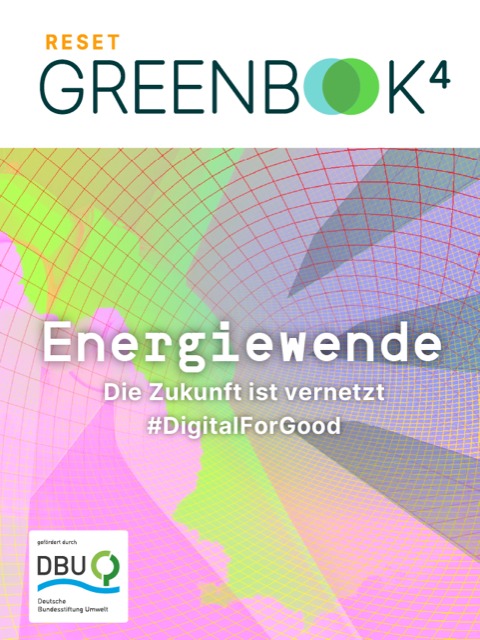
The 1.5-degree target is unattainable without a comprehensive energy transformation. But how can it succeed? What digital solutions are already available and where are innovations needed? How can we accelerate the transformation and overcome the hurdles of building a climate-neutral energy system?
The RESET Greenbook (DE) „Energy transition – The future is networked“ dives deep into the issue and presents innovative digital solutions.
